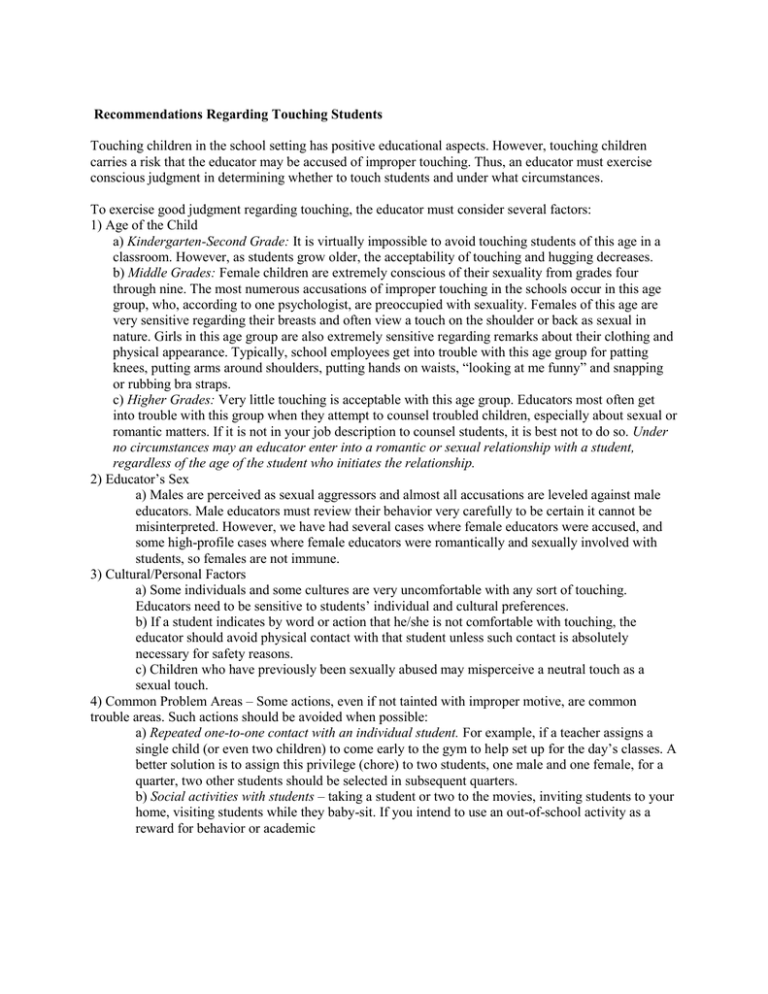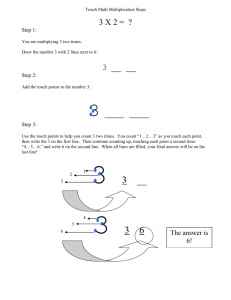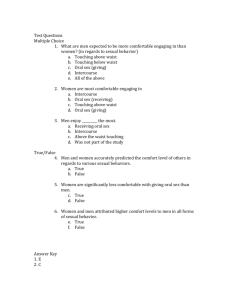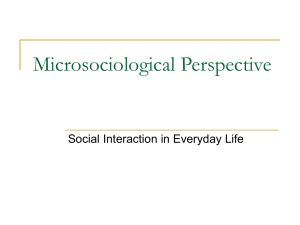
Recommendations Regarding Touching Students
Touching children in the school setting has positive educational aspects. However, touching children
carries a risk that the educator may be accused of improper touching. Thus, an educator must exercise
conscious judgment in determining whether to touch students and under what circumstances.
To exercise good judgment regarding touching, the educator must consider several factors:
1) Age of the Child
a) Kindergarten-Second Grade: It is virtually impossible to avoid touching students of this age in a
classroom. However, as students grow older, the acceptability of touching and hugging decreases.
b) Middle Grades: Female children are extremely conscious of their sexuality from grades four
through nine. The most numerous accusations of improper touching in the schools occur in this age
group, who, according to one psychologist, are preoccupied with sexuality. Females of this age are
very sensitive regarding their breasts and often view a touch on the shoulder or back as sexual in
nature. Girls in this age group are also extremely sensitive regarding remarks about their clothing and
physical appearance. Typically, school employees get into trouble with this age group for patting
knees, putting arms around shoulders, putting hands on waists, “looking at me funny” and snapping
or rubbing bra straps.
c) Higher Grades: Very little touching is acceptable with this age group. Educators most often get
into trouble with this group when they attempt to counsel troubled children, especially about sexual or
romantic matters. If it is not in your job description to counsel students, it is best not to do so. Under
no circumstances may an educator enter into a romantic or sexual relationship with a student,
regardless of the age of the student who initiates the relationship.
2) Educator’s Sex
a) Males are perceived as sexual aggressors and almost all accusations are leveled against male
educators. Male educators must review their behavior very carefully to be certain it cannot be
misinterpreted. However, we have had several cases where female educators were accused, and
some high-profile cases where female educators were romantically and sexually involved with
students, so females are not immune.
3) Cultural/Personal Factors
a) Some individuals and some cultures are very uncomfortable with any sort of touching.
Educators need to be sensitive to students’ individual and cultural preferences.
b) If a student indicates by word or action that he/she is not comfortable with touching, the
educator should avoid physical contact with that student unless such contact is absolutely
necessary for safety reasons.
c) Children who have previously been sexually abused may misperceive a neutral touch as a
sexual touch.
4) Common Problem Areas – Some actions, even if not tainted with improper motive, are common
trouble areas. Such actions should be avoided when possible:
a) Repeated one-to-one contact with an individual student. For example, if a teacher assigns a
single child (or even two children) to come early to the gym to help set up for the day’s classes. A
better solution is to assign this privilege (chore) to two students, one male and one female, for a
quarter, two other students should be selected in subsequent quarters.
b) Social activities with students – taking a student or two to the movies, inviting students to your
home, visiting students while they baby-sit. If you intend to use an out-of-school activity as a
reward for behavior or academic
performance, notify parents and your principal in writing well in advance of the educational
purpose of the reward.
c) Driving students in cars. Students who are in cars with educators often say they were molested.
d) Giving gifts to students. If you wish to give gifts to reward students, discuss such gifts with the
principal before they are given. Never give a student an expensive gift or a personal gift such as
perfume or flowers. Notify parents and principal in writing of the reward system and its
educational purpose.
e) Writing cards, notes or letters to students. Be particularly careful what is written in annuals.
Use professional, distant, name format, such as “Thomas Brown,” rather that “Tom” or
“Brownie.” Do not tell or write students that you “love” them.
5) Other actions will be grounds for discipline and are very difficult to explain:
a) Any request for affection: “give me a hug,” “give me a kiss,” etc.
b) Any touching except on the shoulders, back and arms. Even this is dangerous with girls in
grades four through nine. Avoid lingering touches, such as shoulder massages.
c) Requests for sex or for dates.
d) Any lascivious or sexual remarks of any sort, even those that are a joke.
e) Remarks about body parts – “You have great legs,” “I wish my wife was built like you,” “I’m
bigger than your boyfriend.” Remarks about appearance and dress are also questionable, (e.g.,
“You’re a pretty girl,” or “you should wear that sweater more often.”)
f) Touching girls and boys in a different fashion. For example: hugging girls but not boys. Even if
this is not sexual behavior, it is sexist behavior and may be grounds for discipline.
g) Sexual contact with any student. For certificated employees a “student” includes:
1. Anyone currently supervised by the educational practitioner
2. Anyone currently under the age of 18 whom the educational
practitioner has ever supervised
3. Anyone enrolled in any school or district served by the educational
practitioner
4. Anyone enrolled in any school or district who is attending an activity
at which the educational practitioner is performing duties
h) Sexual contact with a former student. Wait at least a year after graduation, and be sure the
student is 18 years old. Even so, such contact with former students is dangerous to job security.
i) Giving alcohol to students or former students under age 21. Lending identification to underage
students so they can obtain alcohol.
6) MySpace/Facebook/Blogs and Other Web-Based pitfalls – On this topic we say, Just DON'T do it!
You don’t want to have to explain content on web pages associated with you or that can be linked to your
site. If you choose, against our advice, to maintain a web site of any kind, be scrupulous in monitoring not
only your input, but the input/comments of others and links you or others provide.
a) Be cautious regarding content provided by you or by visitors/friends to your site.
b) Never invite a student to your web page or MySpace/Facebook page
c) Remember that while your content may be blameless, the links provided to you could lead to
sites or web pages that are less so.




